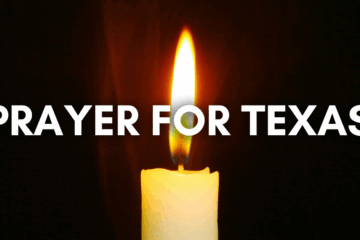Protopresbyter Themistoklis Mourtzanos
‘How great and unsearchable is the depth of your compassion, Merciful Lord. You were patient with the Jews who struck you; with the apostle who touched you; with the perplexed who dismissed you. How were you incarnated? How were you crucified, you who are sinless? But instruct us Lord, that, like Thomas, we may cry to you: My Lord and my God, glory to you’. (Doxastiko, Vespers on Thomas Sunday).
We’re perplexed today, also, regarding faith and Christ. On the one hand, rationalism and the achievements of our times and on the other habit, as well as the fact that these days everybody has an opinion about everything, all combine to make us see faith as something ordinary, mundane, one of the many aspects of life. But the Resurrection of Christ in itself should be enough to make us reflect on a deeper level. The Resurrection’s a feast, not an ideology. It’s the feast of the victory over death. It’s the feast of our encounter with Jesus as both God and human person. And this occurs in a variety of ways: by our encounters with our brothers and sisters in the Church and in the rest of our life, provided we see them with love rather than antagonism or ill-will; by our participation in the Body and Blood of Christ at the sacrament of the Divine Eucharist; by seeking the will of God in every incident in our life; and by the sense that whatever we do for God and other people isn’t in vain, but is rather a priority that leads to a resurrected life, to the experience of the joy of the Resurrection in the here and now.
We don’t have good judgment in our heart today. Thomas was absent from the assembly, from the meeting of the other apostles. He may have been thinking about the intervening events and so had no inclination to join the others. This is also the case with today’s self-centered people. They think about matters of faith on their own, as they do other issues in life. For them, the Church isn’t communion with their brothers and sisters, but the performance of a religious duty. How can they experience the joy of Christ and celebrate the feast when their orientation is self-centered? When their rationale is ‘every man for himself’. It was this thinking that led the disciples to abandon Christ at the Passion, the Cross and the burial. But Christ did away with this rationale when he greeted them all in the upper room in Jerusalem. Thomas’ lack of belief is justified, not only because of his wounded rationalism, but, more importantly, through his self-centeredness. This is why the Lord would allow eight days to pass: to restore the communion of Thomas with the rest of the apostles at the right time; so that Thomas could become at one with them again; and so that, as a member of the assembly, he could experience the truth of the Resurrection, the encounter with the risen Christ. Love leads to unity and without love as the motivating force, there is no encounter and truth, because the latter is personal, is neither communicated nor confirmed and cannot overcome doubts.
We need good judgment in our heart today. An encounter with our neighbor in church, where we all confess together that Christ has risen, being at one with others, whoever they may be. Orthodox faith and tradition are a cultural and spiritual paradigm entirely different from the outlook of our times today. We need a Church [assembly] for the Resurrection. We need a Church for the victory over death. It’s heartfelt consolation for us that, whereas we’re apparently alone at the hour of our death, in essence we’re going forward with Christ, the angels and the saints. And we shall meet all the members of the Church who have departed this life, that is, all who share in our faith. And we continue to be united, in heart and spirit, with those who remain behind, through the sacrament of the Divine Eucharist. Through the living body and blood of Christ. Through the love which never fails. Through the joy of the faith that we’re all glorifying the Lord who rose from the dead. Let us return with Saint Thomas the Apostle to the upper room, to the assembly. And as he proclaimed Christ through love and mercy, thus constructing a palace of love in the heavens, may we also make a practice of love, so that we may believe from the heart. Christ has risen.
Source: pemptousia.com




0 Comments